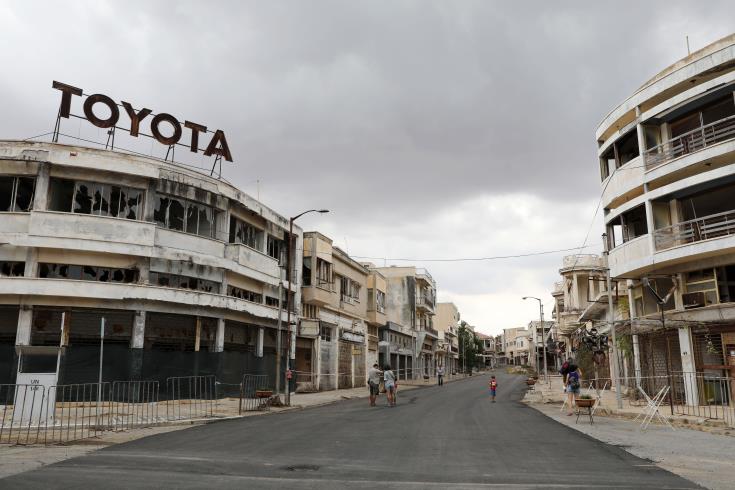Three days have passed since an anti-occupation gathering organised by Famagusta municipality but the negative comments by political parties continue. They have all expressed their disapproval of the “unacceptable” views expressed by the event’s presenter Andreas Kazamias, who, in the words of Diko and Elam, acted as a “tool for whitewashing Turkey and the continuing occupation,” and tried to “exploit the event for party ends, with an extremely divisive discourse.”
Kazamias, a former municipal councillor with Akel connections, might have overdone it in comparing the fires that had cost two lives and destroyed properties, livelihoods and forests with the plight of Famagusta, and blaming the state for being “powerless, inept, uncoordinated and inadequate.” What was lost with guns in 1974 was being lost today through inadequacy, he told the president and the rest of the political leadership present at the event, which was rather indelicate.
What really riled the political establishment was that he blamed our leadership for Famagusta remaining under the control of the Turkish occupation army. He said: “Every time the name Famagusta was written in negotiations’ maps, someone became scared, someone hesitated, someone said ‘no’ without asking us about the substance of the matter. And the town remained closed, not because it had not been offered to us, but because we disagreed over who would cut the ribbon. The ribbon became more important than the path.”
Never have truer words been spoken at the annual event marking the fall of Famagusta, which had always been a forum for hollow rhetoric and platitudes. It was about time someone mentioned the responsibility of our leadership for the fenced area of Famagusta remaining a ghost town for more than five decades. There were opportunities for it to be returned, from as far back as 1978, but these were snubbed by our political leadership, which traditionally presented its shortsighted negativity as an act of great patriotism.
Our leaders do not like it when their narrative is challenged and questioned. This was why Famagusta mayor Simos Ioannou immediately announced that these were not the views of the municipal council, which had an “impeccable” cooperation with President Nikos Christodoulides as well as his predecessor Nicos Anastasiades. Presumably, the municipal council, as part of this cooperation, welcomed Anastasiades’ decision to walk out of Crans Montana in 2017 and thus ensure that the fenced area of Famagusta is never returned to its residents. Then again, the majority of Famagustans voted against the Annan plan by which they would have been able to return to their town under Greek Cypriot control.
Kazamias should be commended for shaking our political leaders out of their complacency and pointing out their collective responsibility for rejecting every opportunity for the return of Famagusta. And who would be to blame if there is no other such opportunity in the future? Certainly not the man who expressed “unacceptable” views at the annual gathering of Famagustans, which in reality is used for the whitewashing of our political leadership, for repeatedly rejecting the return of Famagusta.






Click here to change your cookie preferences